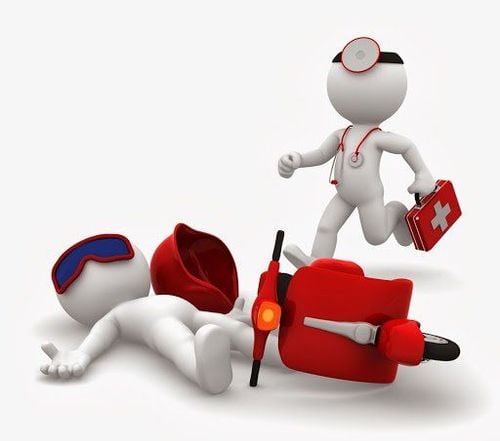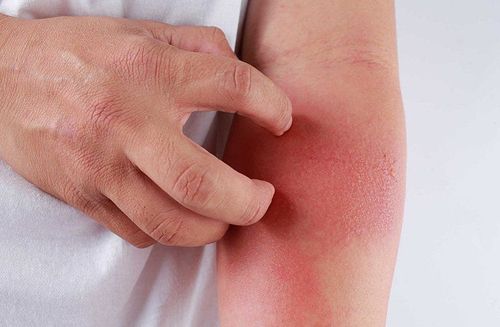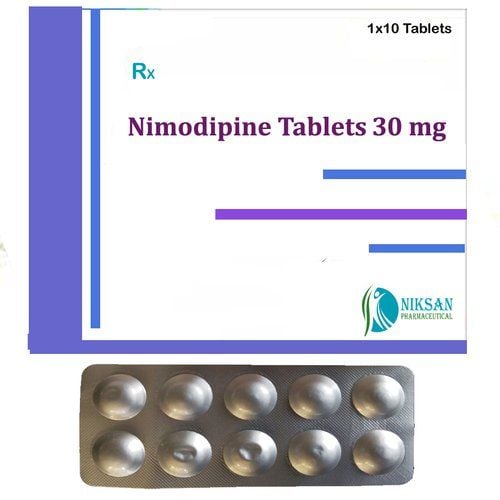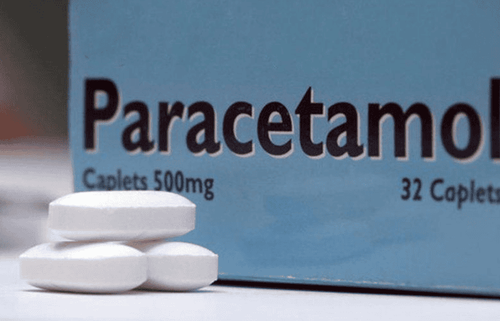This is an automatically translated article.
Dengue fever is an acute infectious disease caused by the dengue virus. The disease can progress to cause many dangerous complications for the patient. Doctors warn that patients with obesity, people with chronic diseases and some comorbidities, and pregnant women are more likely to have dangerous complications when contracting dengue.1. What is Dengue fever?
Dengue fever is an acute infectious disease caused by the dengue virus. Dengue is transmitted by mosquitoes that transmit the dengue virus from an infected person to a healthy person. The disease often breaks out in the rainy season in areas with poor sanitation and standing water in many ponds. This is a favorable environment for mosquitoes to breed and feed on human blood, causing dengue virus infection.In people with mild dengue fever: The disease usually begins with fever and will last for 4-7 days after being transmitted by mosquitoes. The patient will likely experience severe headache, pain behind the eyes, joint and muscle pain, nausea and vomiting, rash, and no complications. Hemorrhagic fever: Symptoms of mild dengue fever include damage to blood vessels and lymph vessels, nosebleeds, bleeding in the gums or under the skin, and bruising. This form of the disease can lead to death. Dengue hemorrhagic fever (dengue shock syndrome): This is the most severe form of hemorrhagic fever, which includes all manifestations of mild dengue plus symptoms of bleeding, accompanied by extravasation of plasma. bleeding, massive bleeding inside and outside the body, shock (low blood pressure). The disease usually manifests itself suddenly after 2 to 5 days and can be fatal, especially in children and adolescents. Patients with dengue fever need to rest, eat nutritious, easy-to-digest foods, take vitamin supplements to improve their health, drink plenty of water, and watch for warning signs and severe signs of the disease to take them to the next level. the patient to the hospital promptly. In particular, do not use aspirin, analgin, ibuprofen to reduce fever, but only use Paracetamol alone.
2. Dengue fever complications

Đối với phụ nữ mang thai bị sốt xuất huyết sẽ khiến cơ thể mệt mỏi, kiệt quệ, chán ăn do đó không đủ dinh dưỡng để nuôi bào thai
Vitreous is the mucus that helps us see. But when bleeding covers this layer of fluid and dissolves, causing hemorrhage in the vitreous fluid, making the patient almost blind.
Hemorrhagic shock When dengue fever is at a critical stage, it will increase capillary permeability, plasma drainage and blood concentration. So the blood will be pushed out through manifestations such as bleeding before the menstrual cycle, bleeding through an open wound, more severe nosebleeds, bleeding gums. It will even make the body exhausted, long-term high fever, nausea, sweating.
Loss of consciousness, coma The most serious bleeding complication is coma. The cause is plasma fluid stagnation in the meninges through the vessel walls causing cerebral edema and neurological syndromes leading to coma.
pleural effusion syndrome Rapidly increasing plasma volume leads to pleural effusion, pneumonia, acute pulmonary edema directly affecting the respiratory tract. If not treated promptly, the risk of death is very high.
Easy miscarriage, premature birth For pregnant women with dengue fever will make the body tired, exhausted, anorexia, so there is not enough nutrition to feed the fetus. It can even lead to an enlarged abdomen and ascites due to rapid plasma leakage.
Liver, kidney, heart failure When bleeding will make blood flow continuously, the heart will not be able to pump blood enough leading to heart failure. In addition, the heart also has effusion causing stagnation due to hemorrhagic plasma fluid, which directly affects life.
Along with that, in order to excrete plasma through urine, the kidneys must also work at full capacity. Therefore, the patient can have acute kidney failure, which is very dangerous.
Headache, dizziness, low blood pressure Extreme headache leading to brain hemorrhage and death is the most serious complication of cerebral hemorrhagic fever. Patients will experience a sudden drop in blood pressure, headache, difficulty in standing and walking.
3. Subjects prone to complications from dengue fever

Người béo phì là đối tượng dễ gặp biến chứng do sốt xuất huyết
Rate of shock due to dengue fever in people with high blood pressure. Normal weight is 4.6%, then in obese people up to nearly 15%.
People with chronic diseases, comorbidities Dengue fever in people with peptic ulcers, people with hemostasis disorders, immunocompromised, diabetes, liver failure, elevated liver enzymes, Pregnant women... are prone to complications from dengue fever.
For dengue fever in people with peptic ulcer disease, this is a severe case of Dengue hemorrhagic fever, the patient will have gastrointestinal bleeding, making the condition serious.
How to prevent dengue To prevent disease, should avoid going outdoors at dawn, dusk and evening, because then there are many mosquitoes outside. When entering mosquito-carrying areas, you should wear a long-sleeve shirt, long pants, socks and shoes, making sure your clothing covers your skin. You should also apply mosquito repellent on areas of your skin that are not covered by clothing, such as your arms, face, legs, and neck. The types of mosquitoes that carry the dengue virus often live in and around homes. They usually live in pools of standing water, such as in pots, drums, or near aquariums. Make sure to clean the aquarium regularly as well as clean up puddles of standing water to not create conditions for mosquitoes to grow. Cover water containers and limit or dispose of items that can contain rainwater (eg old tires, old dishes, pots, etc.). Use aquatic organisms to kill mosquito eggs. When there is an epidemic, sometimes you have to ask the local government to spray insecticide on a large scale. Dengue fever is a dangerous disease that any of us can get sick. Everyone should try to raise awareness of disease prevention. When you see any symptoms of dengue fever, go to a medical facility for timely monitoring and treatment.
Master. Doctor. Nguyen Thi Nhat has more than 10 years of experience in the field of artificial kidney, and in the field of infectious diseases, examination and management of patients with kidney disease and infectious diseases. Currently working as a Doctor of Infectious Diseases, Department of General Internal Medicine, Vinmec Hai Phong International General Hospital
Please dial HOTLINE for more information or register for an appointment HERE. Download MyVinmec app to make appointments faster and to manage your bookings easily.













